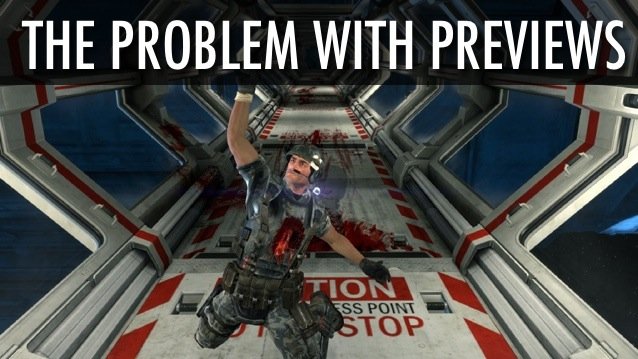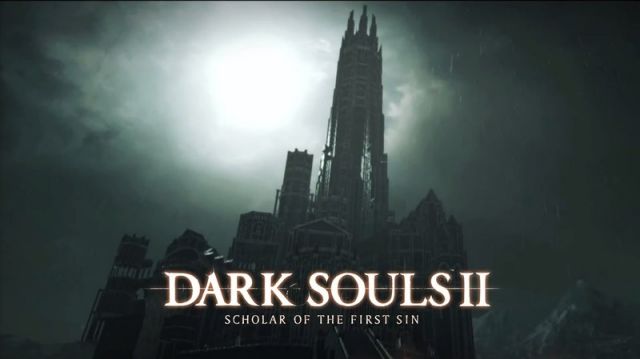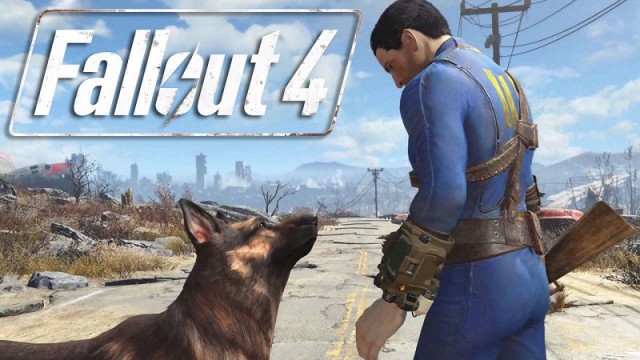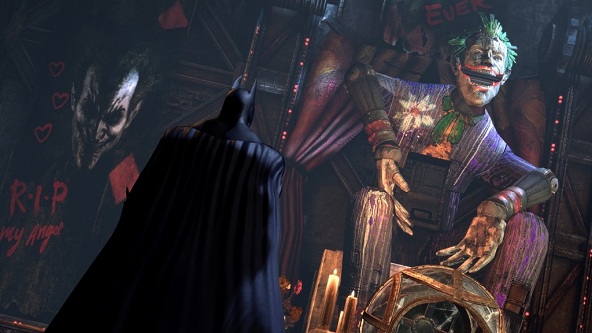


Bobbing up and down in the wake of Aliens: Colonial Marines I find myself in a slightly odd place. To my left is Cinemablend with a spectacularly misguided editorial which compares everyone involved in video games journalism to a Goebbels-Frank Underwood hybrid, going so far as to say they wouldn't piss on us if we were on fire—more or less. Floating face up, some way away in the distance is Jim Sterling gently sobbing, paralysed by Randy Pitchford's betrayal, vowing never to preview another game so long as breath remains in his body.
“I've gone off the idea of previews entirely. I'm sticking to reviews, so I can have real code and be sure it's not some chicanery. To use an already overused Aliens quote -- it's the only way to be sure.”
So far so knee-jerk, but Sterling's outburst also prompted one of the least requited I'm Spartacus moments I've seen in a long time. First up was freelancer extraordinaire Mattie Brice, who hoped to “see that trend spread fast”, followed by Jason Schreier going so far as to call Sterling's piece “seriously inspirational” and “would love to see us all stop doing previews entirely. Leigh Alexander them chimed in stating that previews are “everything wrong [with] games journalism begins with the preview”. At least nobody's being hysterical or over-reacting, in the slightest.
(Editor's note: Jim Sterling has since responded to this piece, clarifying that Colonial Marines was simply the straw that broke the camel's back for him, who states that his retirement from previews has been a "long time coming".
"I am not suggesting nobody should write previews, or even that they're inherently bad," writes Sterling. )
I then engaged each directly, for only Kotaku reporter Schreier to nibble on my worm of enquiry. He believes“there is nothing to be gained from telling readers about controlled slices of games. Trailers, demos, video coverage, interviews... there are plenty of useful ways developers can show off a game” without resorting to the heinous crime of the dirty preview. His reasons for this? “Aliens: CM (great preview demo, awful game) and Destiny (giant preview event with no gameplay footage shown)” but the plot thickens, “I didn't play [A:CM], but common consensus seems to be that the demo was significantly better than the game.” Ah. I see. (my conversation with Schreier)
Aside from the runaway Sterling wagon being fit-to-burst, everyone involved in the issue thus far has almost entirely missed the opportunity for a serious debate by quite a spectacular margin. Why should we stop writing previews? Why should both the honest developers and publishers—i.e most of them—and you, the player, miss out on first-hand subjective reporting about precisely how a game looks, feels, smells and danced? It's a fruitless endeavour that does absolutely everyone a disservice and worst of all, as far as I'm concerned anybody who played Aliens: Colonial Marines in the last six months before release and didn't know it was awful is either a moron or a liar. Why yes, this is an introverted staring-up-our-own bumholes piece about games journalism and my entirely anecdotal view of it.
The problem isn't the concept of previews themselves, but it's our approach to them on the whole.The problem isn't the concept of previews themselves, but it's our approach to them on the whole. There's a tendency for folks to be far too kind, often avoiding glaring pitfalls in hands-on sessions, opting for objective information over subjective opinion. A hands-on should be about the initial impressions of how a particular portion/level plays and feels, qualified, as always, with a huge 'work in progress' sticker' stamped across the byline. Obviously publishers, developers and external PR firms shouldn't show misleading demos at all, but there's a responsibility on the writer's part to discern between what is and what is not relevant for a truly representative preview.
In December I attended part of an all-day Aliens: Colonial Marines event ran by a third part PR company to which several fan-forum groups across Europe were also invited. The day involved yet a presentation detailing the Cool Features, a dinner and some hands-on time. Problem being I had to actively seek out a preview build, tucked away in a room upstairs, to which most of the attendees seemed blissfully unaware. I only played for 15 minutes of Hadley's Hope then had to leave, but that was more my fault than anything, owed to a delightful train balls-up. I didn't write a preview because doing so based on only 15 minutes is grossly unfair, but it was not secret how little I thought of that game, very much in-line with what others journalists were saying. If, 2 months before release, a game isn't being actively thrust in a a writers face then there's almost always something grossly and heinously wrong.
This issue here isn't Colonial Marines and Gearbox's allegedly misleading approach to the entire game—a debate for another article—but one of journalistic competence. A piece of game being shown in isolation, within a controlled environment shouldn't be taken at face value, but neither should it be given the benefit of the doubt. That's simply unfair on potential buyers and our job should be to discern being able to discern between what is and isn't necessary relevant to a preview. During a preview event for Sniper: Ghost Warrior 2, a game which you almost definitely shouldn't buy, had absolutely bat-shit crazy rag doll physics which took away a substantial amount of enjoyment from the game, but something I simply presumed was merely a placeholder for something much better. Upon death, enemies routinely flew several metres backwards, often through walls, like Casper the Friendly Ghost's fat uncle, and it felt cheap. So I asked a City Interactive studio rep and he divulged that it was indeed final. This is precisely the sort of detail which should definitely be included—and indeed stressed—in a preview but is seen all too infrequently.
That's not to say writers should pack their reviews full of scathing critique and a flagon of bile but there has to be a happy medium. Instilling a general aura of how a game plays and the core, foundations from which it's built upon should be the focus, with increasing importance the further away from release a preview occurs. A few rough edges here and there is all peaches and cream, but if 3 months from judgement day something looks like shit, feels like shit and smells like shit, then guess what? If we are going to insist on erring on the side of caution, it should definitely be the other side and automatically assume everything is terrible by default. Better still, if someone invites you over to another continent purely to showcase a pre-rendered trailer, kick them right in the peculiars and refuse to write word one.
Whilst the bruises from Colonial Marines are still raw and aching, it's no reason to go nuclear. There are bridges to be crossed and lessons to be learned, but gouging vital piece of the heart of the matter doesn't move any closer to better games writing. We need to be writing about how a game makes us feel at that moment in time rather than necessarily getting bogged down in specifics but it's insincere to omit something entirely on the hopeful chance that everything will be all right. It's simply isn't fair for a player to spend £40 on something we, as alleged professionals, have our own doubts about, but chose instead to close our eyes, wish upon a star, for only it to come crashing around us.




 H1Z1 Guide: How to Get Started
H1Z1 Guide: How to Get Started Major League Gaming App Comes To Xbox 360 With Live eSports Viewing
Major League Gaming App Comes To Xbox 360 With Live eSports Viewing How to Built a Perfect Character: Fallout 4 Guide
How to Built a Perfect Character: Fallout 4 Guide Where To Find The Witcher 3: Wild Hunt Extra Content On Steam? It's In Witcher 3 Directory, Exact Directory Path Revealed
Where To Find The Witcher 3: Wild Hunt Extra Content On Steam? It's In Witcher 3 Directory, Exact Directory Path Revealed Batman: Arkham City – Harley Quinn’s Revenge DLC Walkthrough
Batman: Arkham City – Harley Quinn’s Revenge DLC Walkthrough